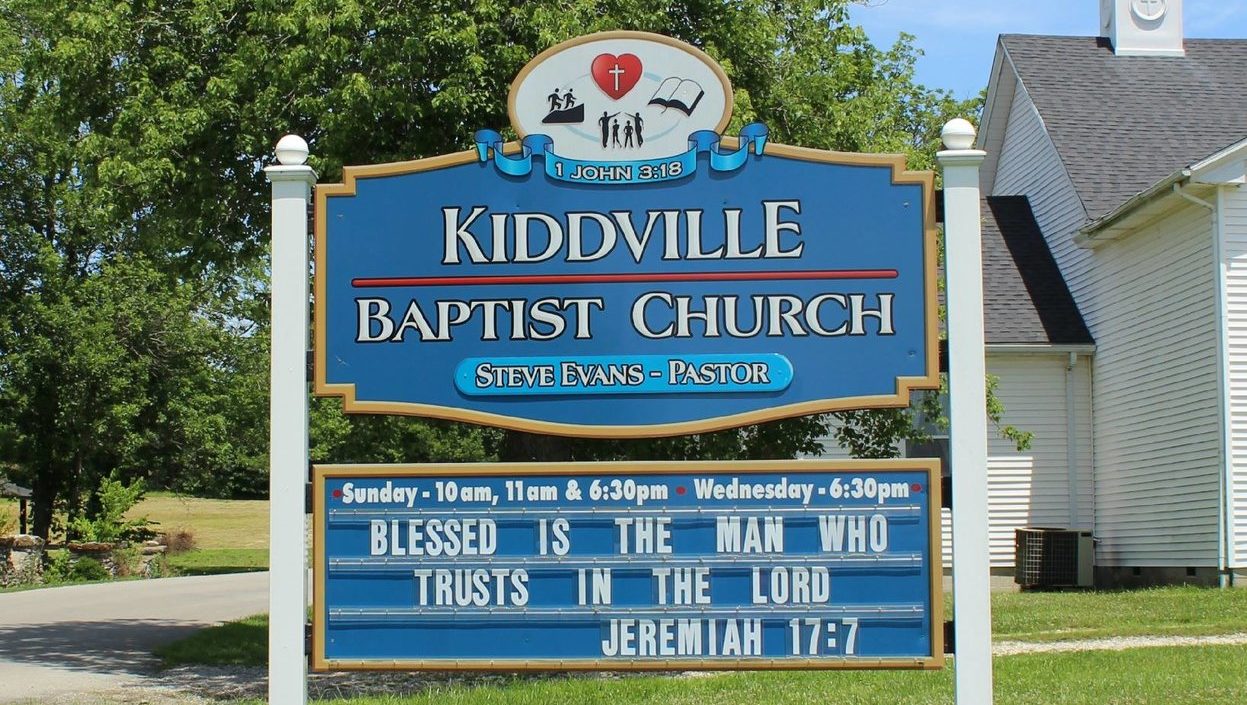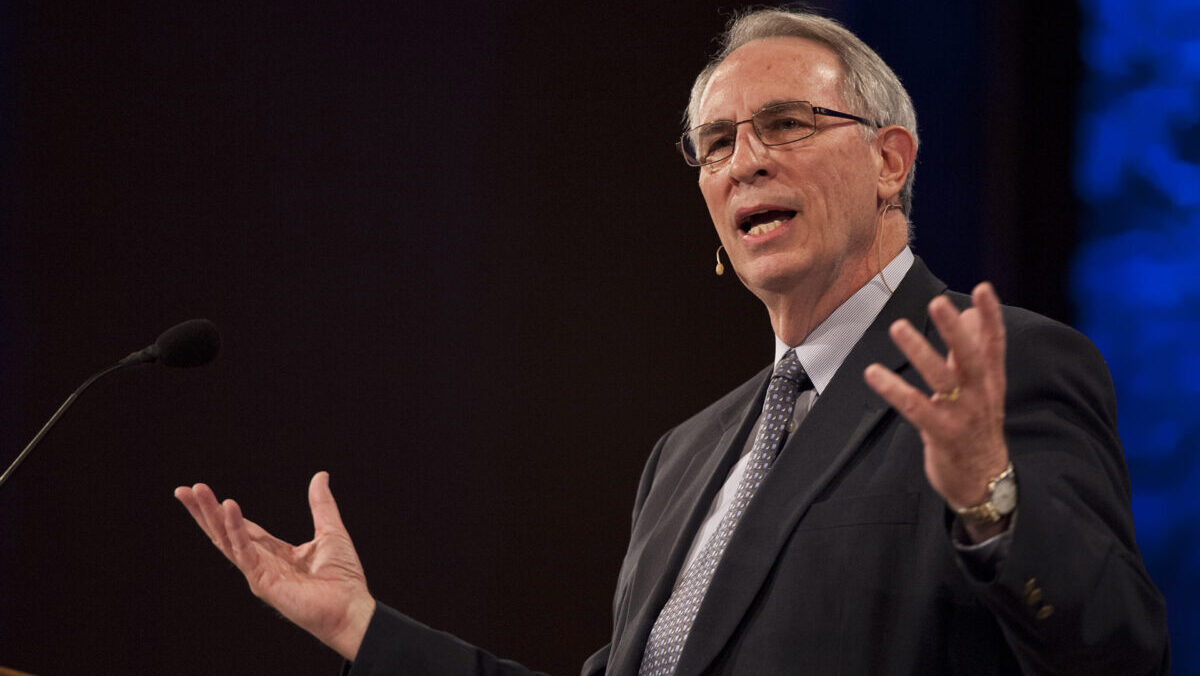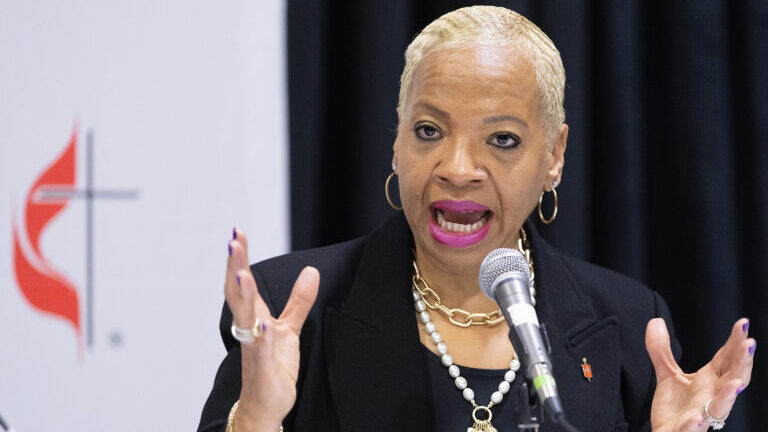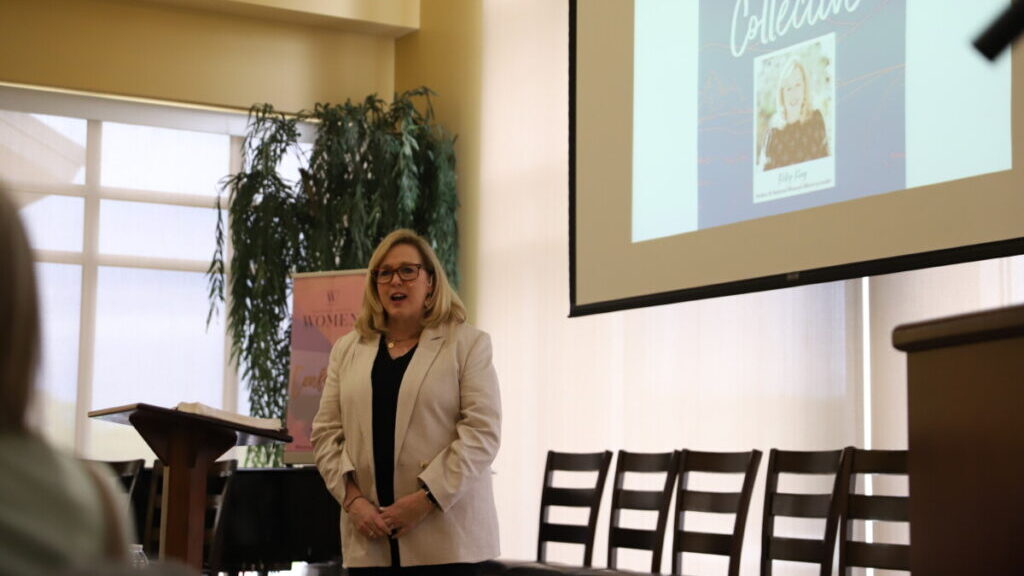A year ago, Kiddville Baptist Church in Winchester, Kentucky, held its usual Sunday worship service, then closed its doors for good. That culminated a years-long agonizing struggle for the pastor and congregation, but Steve Evans is convinced the church “finished well” and that its Kingdom impact will be realized for a long time to come.
A portion of that impact was experienced by Sunrise Children’s Services recently when it received a check for $121,660. Evans, who served as pastor of the church for 22 years, said church members voted that 50% of its assets go to an agency that helps with Christian adoption services, and that Sunrise falls in that category. The remainder of the money will be split between missions organizations and churches of like faith and order who affirm the Baptist Faith & Message 2000. Evans said trustees will soon be distributing those funds.
However, the Kingdom impact involves more than money. The church, established in 1870, earned a reputation as being generous in giving and consistent in reaching out to its community — and now those members are dispersed to serve other churches in surrounding counties. “The people who were left at the end are mature believers — they love the Lord, but all live in separate counties, except for one family. We had people coming to Kiddville who were from Estill, Rowan and Montgomery counties,” Evans said, noting only one family resided in Clark County, where the church was located.
Evans is serving as a Sunday School teacher at Central Baptist Church in Winchester, Kentucky. His wife, son and daughter are also active in ministry there. “We heard the Bible preached, sung and prayed, and one of my adult children said, ‘We don’t need to look any further.’ We joined, and now my family fills up a whole pew,” he said.
Investing in each other
Evans said he rejoices that most of the Kiddville families are now serving in other churches. “We have the skills and gifts of serving and giving — our members are now helping other churches. We’re having more impact separate than we could together.
“This church worked hard — we tried,” said Evans. “The church was willing to take care of each other, it was willing to invest in their pastor. We had a young couple in our church who couldn’t have children, so the church voted to help fund their adoption. Because the church saw joy in that young Christian couple when they got their child, it wanted the bulk of our money to go someplace that had a broader reach than we could have.
“Our church tried to give well to missions; we spent money in our community; we tried to do things internally (adoption). Even with that, as you look back over the last 50 years, with Sunrise we’ve given more in one moment than in the last 50 years combined. We want to give to organizations that will be effective at multiplying money well above what we could do.”
Several times, Kiddville was the highest giving per capita church in the Kentucky Baptist Convention. “That’s a strong statement that this small group of people cared about missions,” Evans noted. “But we just couldn’t see growth. We had a few conversions over the years, but we dwindled down to about four or five families — about 20 people.
Rob Patterson, evangelism team leader for the Kentucky Baptist Convention, previously served as a regional consultant in that area.
“Kiddville Baptist was located at what was once the vibrant crossroads of a fast-growing community. When the church was founded in 1870, Kiddville was projected as the county seat of a planned new county that never came to pass. The church building is the only remaining hint that such a town once existed over a century ago in what is now picturesque farmland.”
In considering what the future might hold for Kiddville, the church paid for Evans to work toward a doctorate degree with a focus on church revitalization. “We were at that moment — would the church need a different pastor, or did the church need to decide whether to close or merge (with another church)?” Evans said. “We went through the process of praying about it. Then about three years ago the church said they knew I wanted to get a doctorate of ministry, and said they would send me to get it in church revitalization in hopes that I might learn something that would help us.
“Since I have been there, the people have matured spiritually and their generosity in giving was evident. The last five years we struggled with what to do. I tried to resign about three times, but they wanted me to stay. We struggled because we were not growing — the church is in a very small area, with only 201 people in a mile radius of the church. We had been to most of those homes several times over the years. We try to expand our reach, but we couldn’t get people to come and stay long.”
Evans said he was concerned that if the church continued to decline to one or two families, he didn’t want the perception “that we mismanaged facility at the end or didn’t attempt to do what was right.”
‘Gain for the Kingdom’
Evans said that after going through church revitalization seminars and what that means for the pastor and the congregation, the church voted to close. The question it faced was how to do that properly.
“We came together in unity,” Evans noted. “The church voted on how it wanted to handle this and liquidate the assets. We only had one family that wanted to stay open, but there was no conflict. An attorney helped us do it the proper way so there was no appearance anyone in the congregation benefitted from it.”
Evans said he believes there is scriptural evidence for the death of a local church. “Not one of the seven churches in Revelation is around. Our church, I believe, has been ‘gain for the Kingdom’ because we finally made the decision to die. My concern was that we not end in a way that would put a black mark on all the church’s history. I’m talking about all the people since 1870 when the church was started, those who purchased the land, who built the first building, the outhouses, then electricity and plumbing and then expanding and building a fellowship hall and leading in all the ministries until last year,” Evans said.
Patterson quoted John 12:24 when Jesus said, “Most assuredly, I say to you, unless a grain of wheat falls into the ground and dies, it remains alone; but if it dies, it produces much grain.” Patterson said the members of Kiddville “could have hung onto that precious grain, but I so admire how with open hands and hearts they allowed something they loved to die in the hopes that God could multiply the harvest beyond anything they could imagine.”
Evans referenced Paul’s statement about himself — to live is Christ, to die is gain — and said he believes that is true for a local church as well. “It is important for us to recognize that. One of my prayers has been to finish well. I want to finish better than I began with Christ.”
Patterson, reflecting on Evans’ ministry there, said, “Steve faithfully pastored this church … I cannot imagine the tears shed as these dear brothers and sisters in Christ labored in prayer over the unthinkable, the local church they loved coming to an end during their generation. But God often moves in unexpected ways and what seems like an ending can be a new beginning in His hands.
“Churches often hang on until the facilities have so much deferred maintenance that kingdom resources are simply lost,” Patterson added. “Kiddville proactively made the stewardship choice to redistribute resources where they could have the maximum impact for God’s glory. What a courageous decision!”
EDITOR’S NOTE — This article was written by Chip Hutcheson, and was originally published by Kentucky Today.








